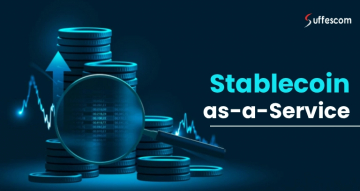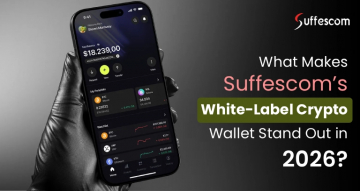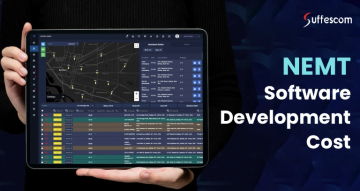RWA-Backed Stablecoins: Growth, Benefits, and Development

RWA-backed stablecoins are a recent phenomenon in crypto, but surely they will last for a long time. Thanks to their ability and the prime nature of being backed by real-world assets such as USD currency or real estate, RWA stablecoin delivers maximum returns, higher transparency, and top on-chain stability. These provisions attract institutional and individual users.
The value of tokenized US Treasury debt surpassed $3.9 billion in 2024, nearly 400% higher than the previous year.
This statistic hints at the rising growth and adoption of RWA stablecoins. Understanding this trend is important, as people worldwide are curious about Real-World Asset Stablecoins.
In this blog post, we shall learn and explore everything about RWA-backed stablecoins.
What are RWA-Backed Stablecoins?
As the term suggests, Real-World Asset (RWA)- backed stablecoins are digital currencies whose value is backed by the value of real-world assets. Such assets range from government bonds to tokenized real estate to commodities.
Opposite to the fiat-backed stablecoins, RWA stablecoins hold tokenized liquid assets. The stablecoins' value will increase directly proportional to the value of such assets.
Such stablecoins include the crypto accessibility and reliability of conventional financial instruments, allowing users to:
- Hold a stable value
- Earn yield
- Get maximum returns
RWA stablecoins are enabling users to earn significant returns without losing their purchasing power. Along with RWA stablecoins, gold-backed stablecoins are a prominent type of stablecoin ensuring yields and stable value.
Build Your RWA-Backed Stablecoin Today
Partner with us to develop secure, scalable RWA-backed stablecoins tailored to your business model.
What are the Factors Behind the Growth of RWA-Backed Stablecoins?
More than price stability, RWA stablecoins offer various benefits. They offer competitive returns from tangible assets such as securities or real estate. Let's understand the other factors as well.
1. Generic Shift
Centralized banking authorities have tight measures, and traditional markets do not offer significant returns. Considering these reasons, investors are inclining towards RWA stablecoins.
2. On-Chain Yield Farming
Yield farming is the basic feature of these stablecoins, which allows users to transfer profits from yield-generating activities.
3. Institutional Adoption
Financial institutions are aggressively adopting tokenized real-world assets. Various eminent investment management companies have started using RWA cryptocurrencies. The adoption by industry players affirms the wider usage of RWA stablecoins.
4. Clear Regulations
Countries like the US, Singapore, and the UAE are implementing clear rules for tokenizing real-world assets. By doing so, they give these tokens legal backing and a clear framework, something most purely asset-backed cryptocurrency still lacks.
This kind of official oversight builds trust, makes it easier for institutions and everyday users to get involved, and paves the way for broader adoption of RWA-backed coins.
5. DeFi Utility and Interoperability
RWA stablecoins are rapidly becoming go-to collateral in DeFi, giving users a dependable on-chain currency that stays calm through market swings and delivers steady returns.
Backed by real-world assets like government bonds or real estate, these coins combine low volatility, transparent backing, and reliable yield, making them attractive to both individual traders and big institutions.
Top RWA-Backed Stablecoins
RWA-supported stablecoins are reshaping how people interact with digital money in 2025 by blending real-world value and blockchain speed. Here are some of the best-performing RWA stablecoins.
1. Ondo Finance (ONDO)
Ondo Finance is a DeFi platform where everyone, from prominent institutions and DAOs to everyday traders, can access high-grade financial services that were once limited to banks and asset managers.
2. Mountain Protocol (USDM)
As a risk-regulated asset stablecoin, it provides daily income to the coin owner by tokenizing USD currency. This stablecoin works under licensing regulation from the Bermuda Monetary Authority. It is the best option for safe investors who seek to invest in cryptocurrencies with high compliance standards.
3. Chainlink (LINK)
Chainlink acts as a bridge between blockchains and the outside world. By running a decentralized network of “oracles,” it feeds real-time data, like property prices or stock values, into smart contracts, so assets such as real estate, commodities, or equities can be safely represented as tokens on a blockchain.
Benefits of RWA-Backed Stablecoin
RWA-supported stablecoins go beyond just keeping prices steady—they unlock real financial tools for people in emerging markets.

1. Higher Stability
Unlike algorithmic or crypto-backed coins that can swing wildly or run out of liquidity, RWA stablecoins are tied to real, physical assets. This backing helps protect against big price swings and gives users confidence that their money’s value is safe.
By pegging to the US Treasuries or tokenized real estate, these coins hold their worth even when local money loses value fast, thus guaranteeing the best stability.
2. Global Market Access
Tokenization breaks down the barriers to big markets. Anyone can buy a fraction of tokenized real estate or government debt, something that used to require a large budget or special licenses. Anyone with a crypto wallet can own tokens tied to real-world investments—no bank account or broker needed.
3. Earn While You Hold
Some of these coins pay out interest from the underlying assets, giving users a way to earn passive income where local bank rates are tiny or nonexistent.
Since RWA-backed stablecoins are backed by income-generating assets like government bonds or real estate, these stablecoins let you tap directly into those returns. You don’t need banks or brokers—just hold the coin on-chain and collect passive income.
4. Full On-Chain Visibility
You can check exactly what’s in reserve and trace every transaction on public blockchains, building trust without hidden middlemen.
Many RWA models use independent audits, on-chain tracking, and public records of the assets they hold. That level of openness builds trust, especially for cautious investors, unlike some stablecoins that hide their reserves or skip audits.
5. Regulatory Alignment
Because they often involve regulated assets like the US Treasuries, RWA stablecoins operate within well-defined legal frameworks. Higher transparency attracts institutional capital and helps avoid the compliance headaches other stablecoins have faced.
6. DeFi-Friendly
With low volatility and built-in yield, these coins are ideal for DeFi: they work as collateral, form reliable liquidity pools, and power savings or staking strategies for lending and borrowing.
7. Institutional Credibility
Backed by tangible assets, audited regularly, and often issued with trusted custodians, RWA-backed stablecoins are fast becoming the go-to tool for institutions looking to tap blockchain safely and confidently.
Understanding the Use Cases of RWA-Backed Stablecoins
By 2025, RWA stablecoins had moved from novelty to everyday finance tools for both individuals and institutions. Unlike fiat-backed stablecoins, these asset-backed tokens draw their value from tangible assets, such as government bonds, real estate, or commodities, giving them a unique spot in the crypto world. They combine dependable price stability with steady yield and real-world value.
Here are the top ways people are using them today:
1. Decentralized Lending & Borrowing
Because their reserves are transparent and audited, these coins make rock-solid collateral on DeFi platforms, cutting lender risk and opening up credit globally.
2. Cross-Border Payments
Companies use them to send money abroad quickly and cheaply, sidestepping bank delays and hefty fees.
3. Yield-Earning Savings
Backed by interest-bearing assets like US Treasuries, holders can earn passive income by staking or simply holding RWA-supported stablecoins on-chain.
4. Treasury Management for DAOs & Businesses
Organizations park idle cash in RWA coins to keep liquidity flowing while earning returns, merging smart finance with blockchain flexibility.
5. Real Estate Tokenization
From paying rent to collecting dividends or buying property shares, these tokens streamline high-value real estate deals entirely online.
6. Stability in Inflation-Hit Regions
In countries battling high inflation, people turn to RWA stablecoins as a safe store of value and everyday medium of exchange, accessible with just a crypto wallet.
These use cases appeal to a wide range of potential issuers and users, from DeFi protocols and crypto natives to asset managers, payment platforms, central banks, and any organization looking to build a stablecoin with real-world backing.
Launch Top RWA-Backed Stablecoins with Us!
Experience the benefits of RWA-backed stablecoins—trusted, scalable solutions built to elevate your digital finance goals.
Process of RWA-Backed Stablecoin Development
Here's a clear, seven-step process for launching your own RWA-backed stablecoin.

1. Choose the Right Real-World Asset
Choosing the right asset to back stablecoin with is half the job done. Choose amongst government bonds, real estate, or gold. The asset you choose will decide the stability and user trust.
Compromising in putting right focus in selecting the right asset would reduce the coin’s value and loss of potential user base.
2. Find a Trustworthy Custodian
The custodian is a firm that holds and safeguards your chosen asset. A trustworthy custodian is essential as the users need to know that their backing assets are real and safely stored. A reputable custodian provides proof and builds confidence.
No third-party checks or control means no proof of backing, except doubts, fewer users, and possible legal trouble.
3. Set Up Transparent Reporting
Transparency is one of the most essential benefits of RWA-backed stablecoins, and creating a seamless way for stakeholders to access regular reports brings an effective communication stream. Higher transparency keeps your project honest and makes users feel safe that every coin is backed by real value.
Lack of clear reporting leads to suspicion, which can cause people to withdraw or never join.
4. Build a Blockchain Interface
Develop a user-friendly web page or app where people can mint (create) and burn (redeem) your stablecoin. An easy-to-use interface lowers the barrier for non-techy users to participate. If it's too confusing, most people will give up and look for an easier alternative.
5. Secure Necessary Approvals
Register to license after checking the local rules for real asset management and issuing digital coins. Meeting legal requirements keeps you out of trouble and makes institutions more willing to work with you. You risk fines, forced shutdowns, or lawsuits, any of which can destroy your project overnight.
6. Plan for Ongoing Asset Management
Decide how you'll buy, sell, and reinvest the backing assets over time, plus who will oversee that process. Keeping your asset pool healthy ensures continued stability and lets you pay out redemptions smoothly.
Poor management could leave you short when users try to cash out, causing panic and a crash in value.
7. Launch, Educate, and Iterate
Roll out your stablecoin, teach users how to use it (tutorials, guides), and collect feedback to improve. A successful launch isn't just technical, it's about making sure people understand the benefits and process.
Without education and updates, users may misuse the coin or lose interest, stalling your growth.
These seven steps will give you a solid foundation on how to create a stablecoin that users and institutions can trust.
Wrapping It Up!
As of April 2025, the total on-chain value of RWAs reached $21.61 billion, marking an 8.61% increase over the previous month. This growth is primarily driven by tokenized private credit ($12.9B) and US Treasury debt ($6.2B).
Various factors are contributing to its higher adoption, including the provision of on-chain yield farming, institutional adoption, DeFi utility and interoperability, and more!
RWA-backed stablecoins have different use cases, including decentralized lending & borrowing, cross-border payments, yield-earning savings, treasury management for DAOs & businesses, and real estate tokenization.
The process of developing RWA stablecoins starts with choosing the right real-world asset, followed by finding a trustworthy custodian, setting up transparent reporting, building a blockchain interface, securing necessary approvals, planning for ongoing asset management, and launching.
Please note that to get the best results, it is advisable to get the assistance of stablecoin development services. Hence, put immense focus on research and choose the right stablecoin developer.
FAQs
1. What are RWA-backed stablecoins?
A RWA-backed stablecoin is a digital cryptocurrency whose value is backed by the value of real-world assets such as real estate. Such cryptocurrencies offer higher transparency, stability, and access to the global market.
2. What are the top RWA-backed stablecoins?
The list goes on, but the top RWA stablecoins are Chainlink (LINK), Ondo Finance (ONDO), XDC Network (XDC), and Quant (QNT). A professional blockchain development company has the right expertise to develop these stablecoins.
3. How much does it cost to develop an RWA stablecoin?
It costs between $5,000 and $20,000 to create an RWA-backed stablecoin. This cost range includes every essential developmental component, such as designing the interface, development, security testing, and market launch.
4. What is the process of creating an RWA-backed stablecoin?
The process of creating an RWA stablecoin starts with choosing the right real-world asset. It is followed by finding a trustworthy custodian, setting up transparent reporting, building a blockchain interface, securing necessary approvals, planning for ongoing asset management, and launching.







